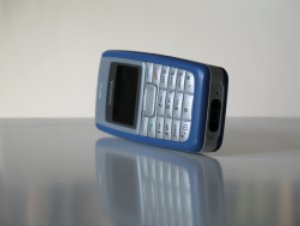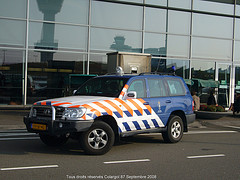
Anyone who lives here and who has visited this country and its bigger cities knows how dangerous cyclists fiddling with their mobile phones can be, and I for one welcome a ban on this hazardous activity that makes them a danger to others.
As of July 2019 the Dutch government will impose a ban on using a mobile phone, tablet or media player while cycling. But that’s not all: it will also affect tram drivers and drivers of vehicles used by the disabled.
Since there are more cyclists on bike paths and cycling speeds have increased due to the arrival of electric bikes, the lack of keeping your eyes on the road has also increased. There’s no word yet as to how much a fine will be, but the fine for motorists using mobile phones while driving is 230 euro, to give you an idea.
In the Netherlands bikes outnumber people, with nearly 23 million bikes for some 17 million people. The use of mobile phones is a growing hazard, with a smartphone involved in one in five bike accidents involving young people, according to the Dutch Road Safety organisation.
What about using your phone for navigation? Then it needs to be in a holder, not in your hands. Will there be enough police or other authorities to fine folks? That’s always the question.


 Mobile phone manufacturer Motorola
Mobile phone manufacturer Motorola  Eindhoven-based inventor and designer Dave Hakkens is a man of ideas and his latest idea, a mobile phone of which you can swap out parts when they break down or get too old, is getting a lot of attention on the Internet.
Eindhoven-based inventor and designer Dave Hakkens is a man of ideas and his latest idea, a mobile phone of which you can swap out parts when they break down or get too old, is getting a lot of attention on the Internet. The three major Dutch banks—ING, ABN Amro and Rabobank—are set to introduce ‘mobile payments’ to unsuspecting consumers in two weeks,
The three major Dutch banks—ING, ABN Amro and Rabobank—are set to introduce ‘mobile payments’ to unsuspecting consumers in two weeks,  A Dutch company has started building a mobile phone that they say is made from conflict-free materials by well-paid workers while also addressing what happens once the phone has reached the end of its life.
A Dutch company has started building a mobile phone that they say is made from conflict-free materials by well-paid workers while also addressing what happens once the phone has reached the end of its life.  A designer ‘dumbphone’ from the Netherlands: ad agency John Doe from Amsterdam came up with this 80 euro marvel called John’s Phone, and as the price tag suggests they actually put it in production!
A designer ‘dumbphone’ from the Netherlands: ad agency John Doe from Amsterdam came up with this 80 euro marvel called John’s Phone, and as the price tag suggests they actually put it in production!
 Patent lawyer
Patent lawyer